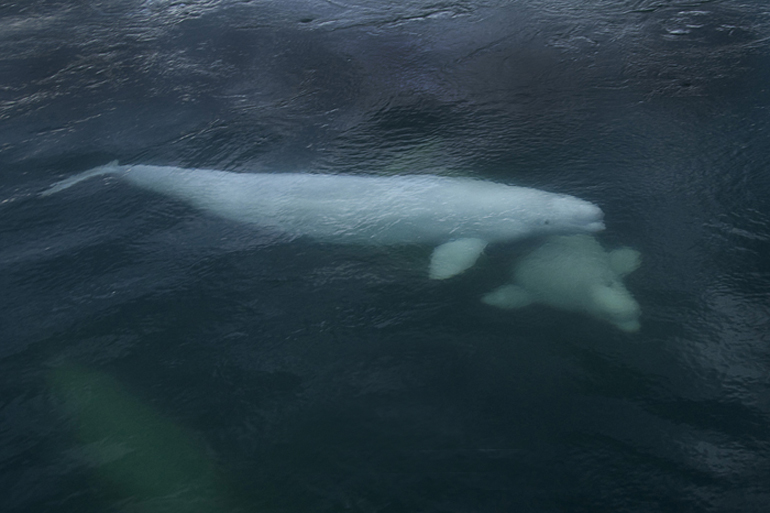
Until he extends the circle of compassion
to all living things,
man will not himself find peace.
Albert Schweitzer
In morning bright as day a white beluga whale, luminous in the sapphire sea, approaches my kayak. Summoned by my thrashing paddle, he swims alongside the vessel. At once he tilts a bit to look my way, through dark, knowing eyes, as if to check me out. Apparently concluding I am friendly he begins to nibble and tug, ever so gently, on the end of my paddle. A interspecies tug-of-war, no less! I am neither surprised nor threatened. Belugas, like other marine mammals, have a reputation for kindred spirit encounters with man. Indeed, he seems as inquisitive as I.
Unlike the bona fide grin of his dolphin cousin, the beluga's smile is subtle, like the Mona Lisa's. There is unknowable mystery here that we are left to contemplate. Add a flexible neck and you have a whale of whimsy, a white ghost of blue water, agile and friendly, but elusive.
Sailors of yesteryear heard beluga songs through the wooden hulls of their ships and began to call them "sea canaries." For whatever reason the nickname stuck, probably because they are highly vocal, vying with humpbacks for the title of noisiest whale. Most judges call it a tie. But it's no contest in the "carry a tune" category, belugas coming in a distant second in this field of two. A pod of belugas calls to mind a junior high band audition. Sounds have been described as assorted clicks, squeaks, groans, and brays, with an occasional tweet thrown in. Despite the dreadful revues, the complexity of sounds suggests a much nuanced inner world as the beluga confronts a wide range of experiences: birth, nurturing, death, and so on-same as us.